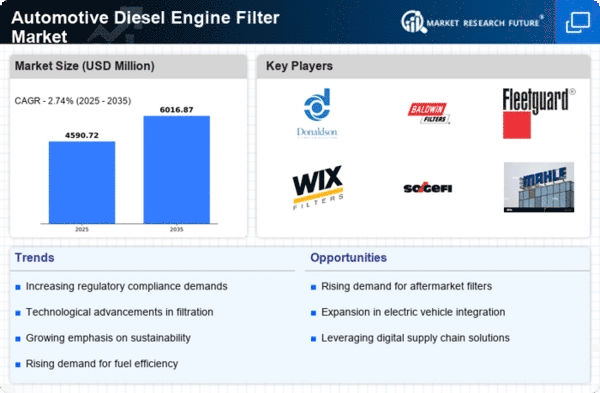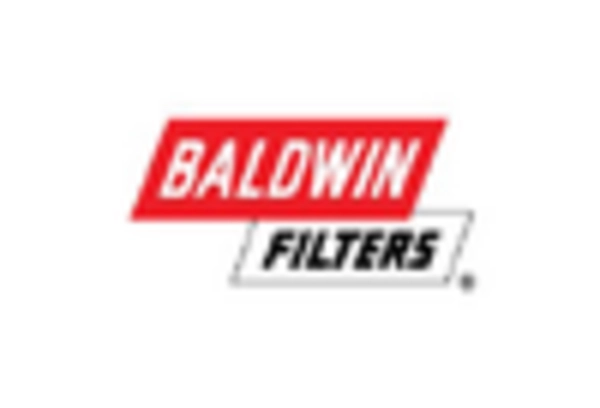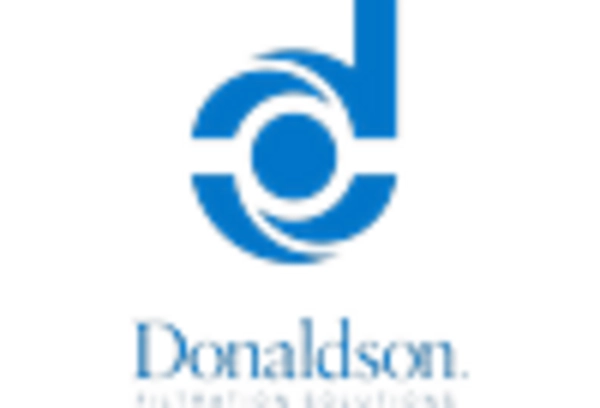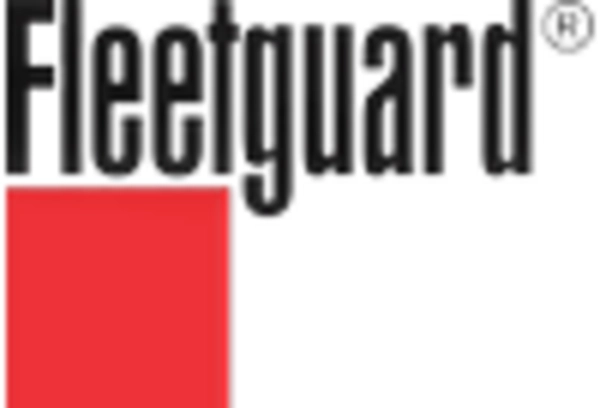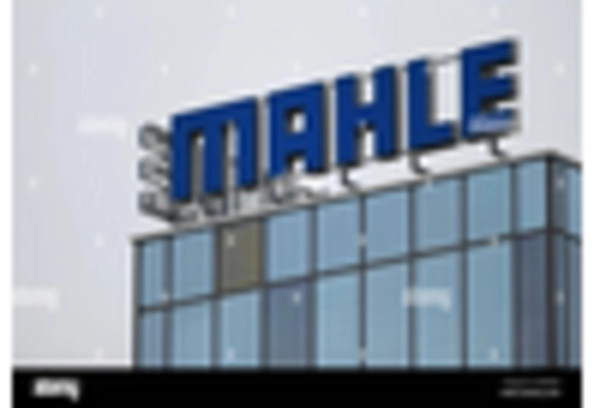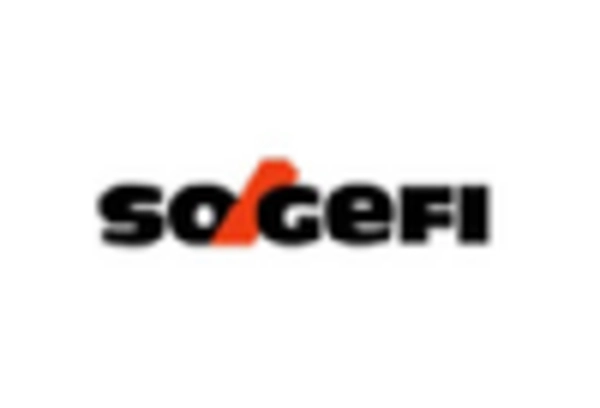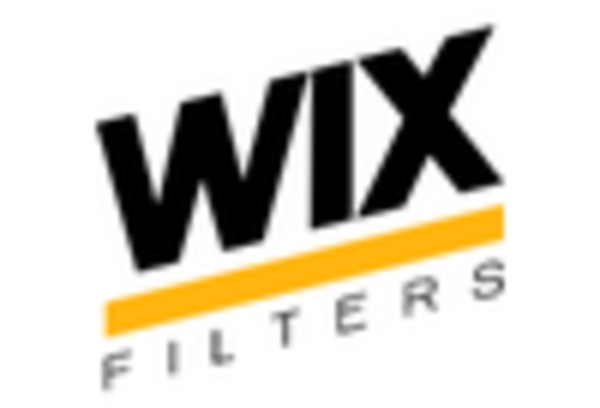Market Growth Projections
The Global Automotive Diesel Engine Filter Market Industry is projected to experience substantial growth over the next decade. With a market value of 4.47 USD Billion in 2024, it is anticipated to reach 6.02 USD Billion by 2035. This growth trajectory suggests a compound annual growth rate (CAGR) of 2.74% from 2025 to 2035. The increasing demand for diesel vehicles, coupled with advancements in filtration technology and stringent emission regulations, is likely to contribute to this upward trend. As the industry adapts to evolving market dynamics, the future of diesel engine filters appears promising.
Stringent Emission Regulations
The Global Automotive Diesel Engine Filter Market Industry is significantly influenced by stringent emission regulations imposed by governments worldwide. These regulations aim to reduce harmful emissions from diesel engines, prompting manufacturers to develop advanced filtration technologies. For instance, the introduction of diesel particulate filters (DPFs) has become essential for compliance with these regulations. As the market evolves, it is anticipated that the demand for high-performance filters will increase, thereby driving market growth. The need for compliance with these regulations is expected to sustain the market's trajectory towards a projected value of 6.02 USD Billion by 2035.
Growth in the Transportation Sector
The Global Automotive Diesel Engine Filter Market Industry is closely linked to the growth of the transportation sector, particularly in emerging economies. As urbanization accelerates and infrastructure development progresses, the demand for commercial vehicles equipped with diesel engines is on the rise. This trend is evident in regions where logistics and freight services are expanding. The increasing number of diesel vehicles on the road necessitates efficient filtration systems to maintain engine performance and comply with emission standards. Consequently, this growth in the transportation sector is expected to bolster the diesel engine filter market significantly.
Increasing Demand for Diesel Vehicles
The Global Automotive Diesel Engine Filter Market Industry is experiencing a notable increase in demand for diesel vehicles, driven by their efficiency and longevity. Diesel engines are often preferred for heavy-duty applications, such as trucks and buses, which require robust performance. As of 2024, the market is valued at approximately 4.47 USD Billion, reflecting the growing reliance on diesel technology in various sectors. This trend is likely to continue, as manufacturers innovate to enhance fuel efficiency and reduce emissions, thereby contributing to the overall growth of the diesel engine filter market.
Technological Advancements in Filtration
Technological advancements in filtration systems are playing a crucial role in the Global Automotive Diesel Engine Filter Market Industry. Innovations such as improved filter materials and designs enhance the efficiency and lifespan of diesel engine filters. These advancements not only contribute to better engine performance but also align with environmental standards by reducing particulate emissions. As manufacturers invest in research and development, the market is likely to witness a compound annual growth rate (CAGR) of 2.74% from 2025 to 2035. This growth is indicative of the industry's commitment to integrating cutting-edge technology into diesel filtration solutions.
Rising Awareness of Maintenance Practices
The Global Automotive Diesel Engine Filter Market Industry is benefiting from a rising awareness of maintenance practices among vehicle owners and operators. Regular maintenance, including timely filter replacements, is essential for optimal engine performance and longevity. As consumers become more informed about the importance of maintaining diesel engines, the demand for high-quality filters is likely to increase. This trend is particularly relevant in commercial sectors, where downtime can lead to significant financial losses. Consequently, the emphasis on maintenance is expected to drive the market forward, ensuring that diesel engine filters remain a critical component in vehicle upkeep.


